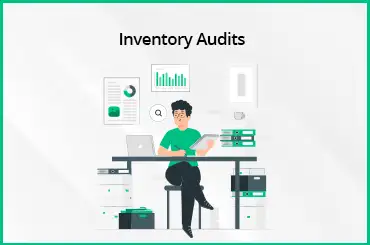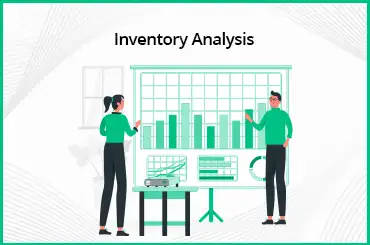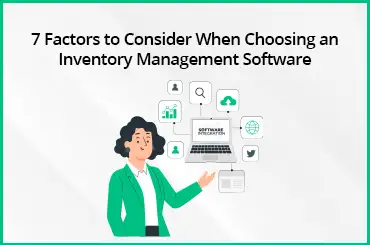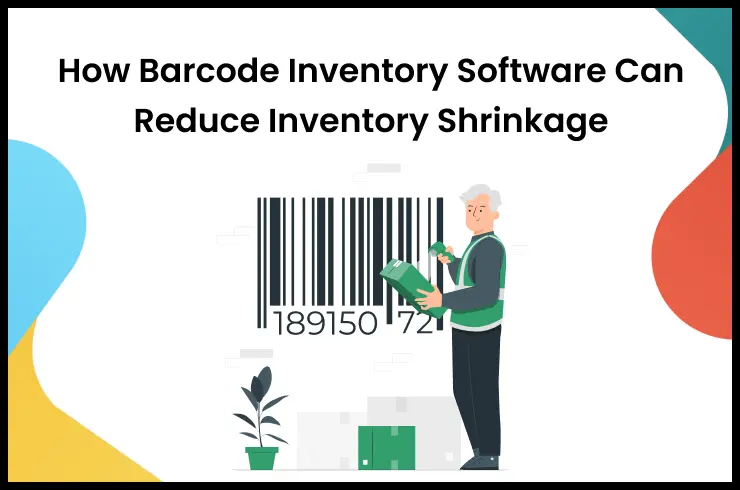As a manufacturer, you would know that effective inventory management is very important for transparent business operations. But, many businesses make mistakes in the inventory management process, such as poor stock management and supply chain. These mistakes result in overspending, waste of time and useless effort. Therefore, it is important to have inventory management software and know the possible mistakes to avoid problems in your manufacturing business.
In this blog post, we will discuss the top 10 mistakes in the inventory control system and tips to avoid them.
Read Inventory vs. Stock: What’s the Difference & Why It Doesn’t Really Matter.
Why Good Inventory Management Matters?
Inventory operations are considered the backbone of the manufacturing business. Good inventory management helps you forecast the demand and avoid overspending on raw materials and manufacturing processes. It is important that you choose the best inventory management software to reduce mistakes and improve the profitability of the business. Here are the top benefits of a good inventory managing process:
- Reduces the overall cost of manufacturing.
- Promotes proper use of warehouse space.
- Speeds up the supply chain processes.
- Allows proper stock management.
- Leads to satisfied Customer Relationship Management.
- Increases profit of the business
Read Inventory Management: TCS vs. TranZact Automation Benefits.
10 Common Inventory Management Mistakes
There are many benefits to a good inventory management process. Many small and medium enterprises make mistakes with outdated ERP solutions, ignoring demand, and many more. Let’s have a look at the 10 most common mistakes that manufacturing businesses make in managing their inventory.
1. Ignoring Demand Forecasting
Many business owners fail to predict customer and market demands. This can be because of improper inventory management software, which doesn’t provide accurate data. As a result, they are unable to manage their stocks and meet customers' needs. This later contributes to losses.
2. Lack of Measuring Metrics
Supply chain complexity is one of the biggest inventory management challenges in manufacturing. Because of this, businesses are not able to measure the KPIs (Key Performance Indicators) involved in supply chain management. This mistake may lead to misalignment in production scheduling. It can also lead to failure in order fulfillment and streamlining the supply chain process.
3. Manual Inventory Management
Even today, some SMEs use a manual inventory management approach. This can lead to missing out on orders. It requires an extra workforce and cost to manage inventory. Manual management leads to errors in data entry and even consumes too much time. It affects the overall business operations and reduces efficiency.
Have you read the Comparison between Odoo Inventory vs TranZact
4. Outdated Inventory Management
Another mistake many SMEs make is relying on outdated inventory management software. These systems come with very limited features in terms of monitoring the real-time inventory and matching the latest trends. As a result, it is not as good as its competitors.
5. Skipping Inventory Checks
Sometimes, your tracking software can provide inaccurate stock data, which may lead to understocking and affect the supply chain operations. It usually impacts order fulfillment and damages the reputation of the brand.
6. Ignoring Recorder Points
Businesses usually underestimate the ROP (Reorder Points). This makes them suffer from stockouts or lost sales. It occurs when manufacturers are unable to gather and analyze the sales data, safety stock, and lead time in inventory management. Ignoring ROP can affect sales during peak demand. This can impact overall business operations and damage brand reputation.
7. Poor Inventory Visibility
One of the common inventory management mistakes is when businesses struggle to track accurate stock levels. This leads to an out-of-stock situation or overstocks, causing losses of money and time. Due to poor inventory visibility, business owners face difficulties in meeting the deadline, which harms their brand value.
8. Unsuitable Inventory Storage
Many manufacturing businesses own multiple warehouses, but monitoring them is difficult. Due to the inability to identify dead stocks and top-performing stocks, businesses fail to utilize the warehouse space properly.
9. Ineffective Communication
An inventory management system involves several departments. This means they need clear and effective communication with each other. But, many companies fail to integrate those departments under one platform. With cloud-based Inventory management software, SMEs can access various business teams and communicate with their vendors and customers easily.
10. Focusing Only On Price
Buying raw materials from suppliers at a low cost is very important to making profits. However, many manufacturers focus only on the purchase price. Because of this they are unable to determine the TOC (Total Cost of Ownership) in the inventory management approach. It is important to consider factors like purchase price, supplier lead time, MOQ (Minimum Order Quantity), and many more as well to determine the price of procurement.
Solutions To Automate Processes and Help Avoid Mistakes
Automating your inventory management process can help minimize errors and improve demand forecasting. Implementing the barcode inventory management solution can provide accurate date of stock counts. Cloud-based inventory software allows access to real-time stock visibility in multiple locations. An ideal inventory management software also provides an inventory tracking system that contributes to the full visibility of stock levels. The automated inventory tracking software provides centralized order management with live reporting.
TranZact Vs Tally: Effective Inventory Management Solutions, what is better?
Here are the most important functions of inventory management solutions:
- It can automatically update the rejected stocks and view minimum and maximum levels.
- The graphical representation of price trends allows you to estimate FIFO (First In, First Out) pricing and average pricing.
- The automated process helps streamline order management and achieve the deadline.
- OMS (Order Management System) helps keep track of all the operations, including order entry, inventory control, and post-sales.
- It also helps SMEs (Small and medium enterprises) manage the complete fulfilment process for orders.
- It allows complete visibility of inventory levels, real-time inventory management, and automated sales process.
Read Zoho Inventory vs TranZact.
Improve Your Inventory Management Process With TranZact
Inventory tracking and managing the stock level are the most challenging aspects of any manufacturing business. Many SMEs make inventory management mistakes in gathering valid data, forecasting demand, and achieving order fulfillment. TranZact inventory management software, specially developed for Indian manufacturers, helps you automate many steps in warehouse management systems with easy inventory tracking.
Find out How does TranZact help you Manage Inventory Efficiently?
This software contains many tools, like a barcode scanning system for stock counts and maintaining inventory accuracy. It also helps with better communication within different departments. TranZact also offers other functionalities like sales, production, planning, and purchase along with inventory. You can use it for all your business's operational tasks.
Choose TranZact now to improve your overall manufacturing business operations by streamlining your inventory management and supply chain.
FAQs
1. What is bad inventory management?
Bad inventory management is the inability to manage the flow of goods and materials within and outside the manufacturing business.
2. What is improper inventory management?
When an SME doesn't have enough technical support to manage their inventory, it is called improper inventory management. Most of their operations are carried out manually, which increases the risk of human error.
3. What is the biggest challenge in inventory management?
The biggest challenges in inventory management are:
- Improper inventory management
- Errors from manual operations
- Lack of accuracy
- No communication within the organization
- Poor supply chain management
- Poor inventory visibility
- Focus solely on the purchase price
- Improper utilization of storage space
- Underestimate ROP (Recoder Points)
4. How to avoid the most common inventory management mistakes?
To avoid the most common inventory management mistakes, you must consider the following points:
- Implement an ideal cloud-based inventory management software.
- Automate your order management process.
- Integrate barcode scanning system for accurate inventory count.
- Automate your accounting process through cloud-based ERP solutions.
- Improve your CRM (Customer Relationship Management) through order fulfillment.
- Get real-time reports about vendor’s payments, sales, and purchases.
5. How do you manage poor inventory management?
You can manage poor inventory management by:
- Improving the supply chain
- Automating the inventory tracking
- Generating real-time reports
- Scheduling the production process as per needs
- Automating the warehouse management system
- Utilizing proper storage space
- Analyzing the stock level and dead stocks
- Having emergency stocks for emergencies
6. What are the 4 ways of achieving proper inventory control?
The 4 ways of achieving proper inventory control are:
- ABC Analysis
- FIFO (First In, First Out)
- LIFO (Last In, First Out)
- Safety Stocks
7. What are the 4 steps of accurate inventory management?
The 4 steps of accurate inventory management are:
- Access your current inventory
- Review your last inventory stocktake
- Analyze your sales data
- Identify the items to purchase or retain
8. How do you maintain inventory accuracy?
You can maintain your inventor's accuracy by conducting frequent inventory counts. You can automate your inventory tracking process by implementing cloud-based Inventory management software.
9. What is your method for managing inventory errors?
Here are the methods to manage inventory errors:
- Automate the inventory tracking process
- Streamline the supply chain
- Get real-time reports of inventory and procurement
- Understand the market demand.














